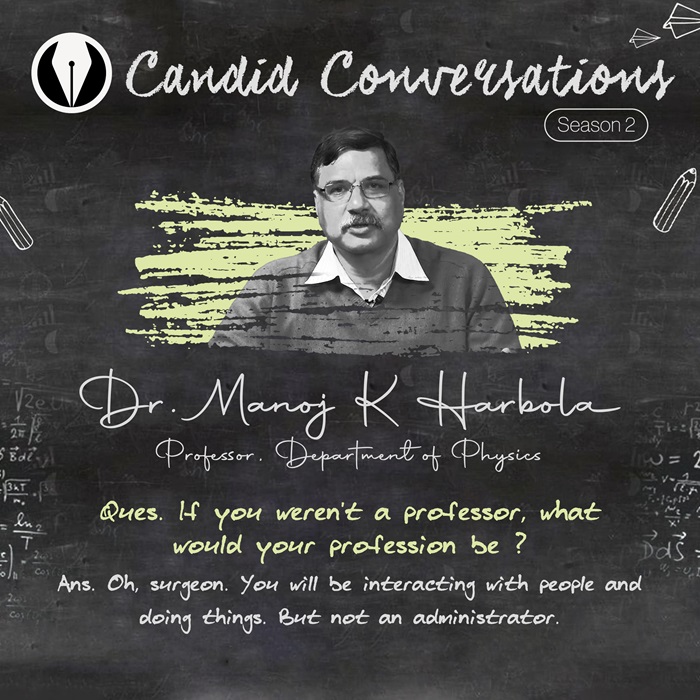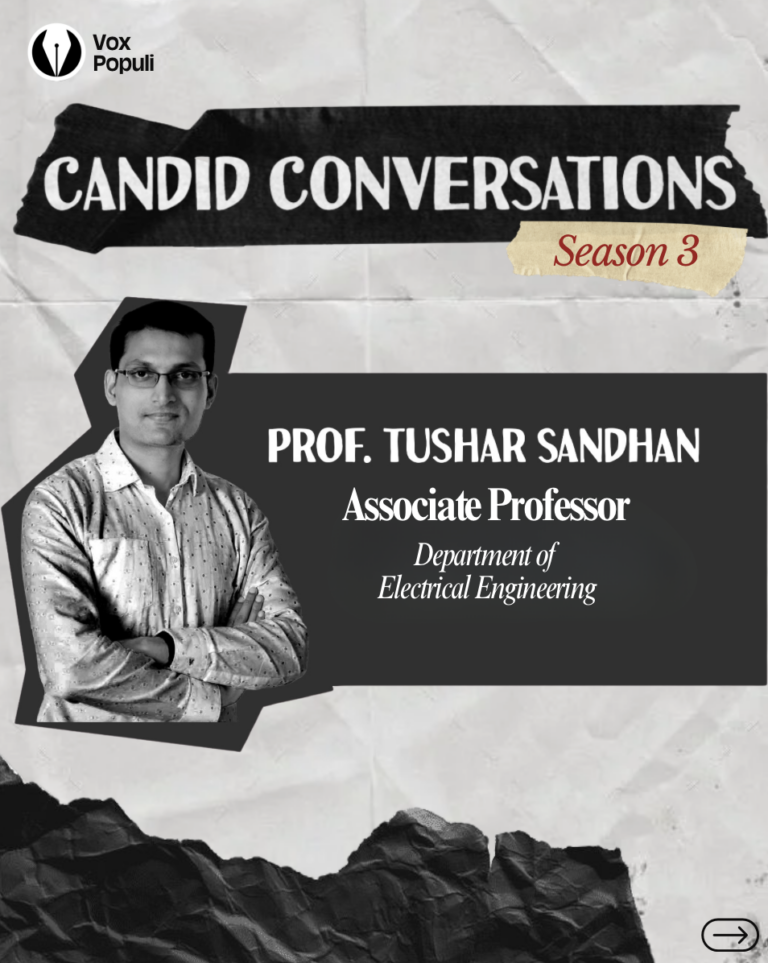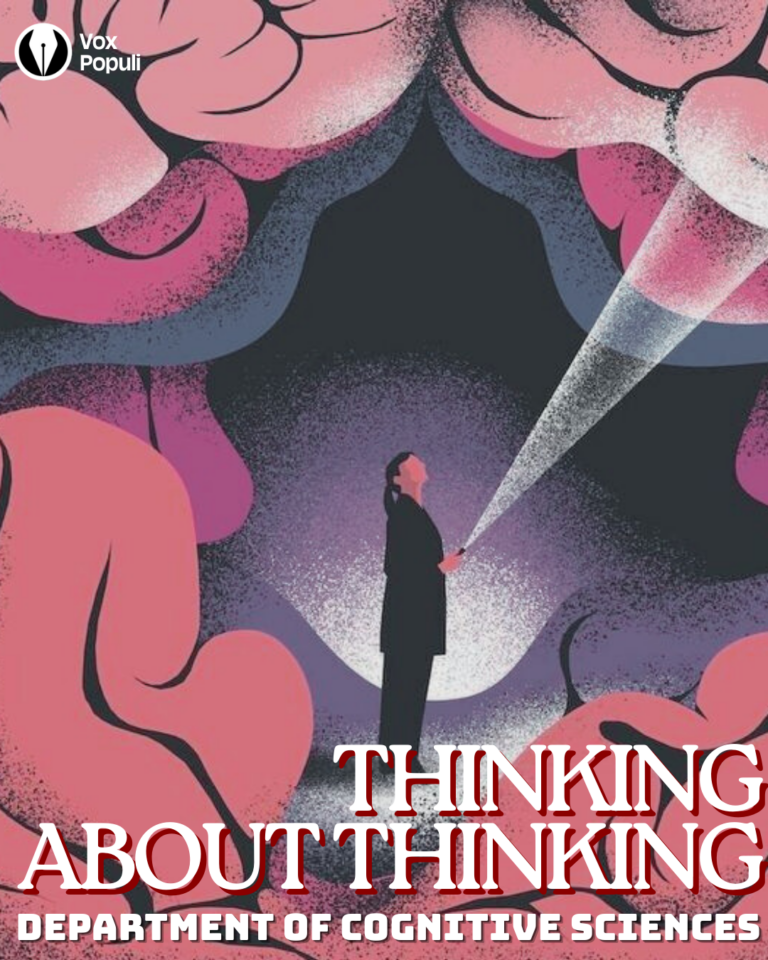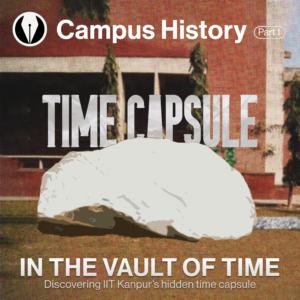Disclaimer: Vox Populi, IIT Kanpur, is the exclusive owner of the information on this website. No part of this content may be duplicated, paraphrased, or interpreted in any other way without written consent from Vox Populi. If you want to reproduce any of the content on this page, please contact our chief editors directly or reach out to us by email at voxpopuli@iitk.ac.in
Have you ever wondered about the lives of your professors beyond the lecture halls and labs? Were they just like us as students? What paths might they have taken if not for academia?
Vox is back with Season 2 of Candid Conversations with Professors @IITK, where our professors share their journeys, interests, and unfiltered insights into life at IITK and beyond. Here’s the first part—stay tuned for the next parts, featuring some of our other professors, with different stories!
In part 1 of this season, we sit down with Professor M.K. Harbola to dive into his world outside academia. From his unique approach to teaching quantum mechanics to his passion for jogging, reading, and daily exercise, Professor Harbola shared a glimpse of his multifaceted personality. Reflecting on the evolution of his teaching philosophy, the joy of connecting with students, and the challenge of being a “tough grader” with a purpose, he offers candid thoughts and refreshing insights into the experiences that shape his journey.
What character or person does your personality resemble most, if any?
You should tell me. I don’t analyse my personality. Because I’m still evolving. I keep changing as a person, a researcher and as an educationist. So it’s very difficult to say. You will also realise as you grow older that you are evolving continuously. You do not resemble somebody all the time.
If you could have dinner with any three people, dead, alive or fictional, who would they be?
I don’t have any preferences, and I don’t believe it would have been good only if a specific person came. It’s not like I’ll go out with Einstein; he will give me knowledge and all. Knowledge I’ll collect anywhere. It should be a fun interaction. So it could be anybody, certainly not a criminal or gunda, but anybody nice to talk to because every person gives you joy, no matter what. At your age, you think it would be fun only if you go with certain people. But it is not like that. The person accompanying doesn’t matter. If you have a wide range of topics to talk about, you can enjoy with anybody. It’s up to you what you extract out of the conversation.
What are some hobbies and activities that you enjoy in your free time?
I jog every day, swim every day, go to gym every day, and read a lot.
What do you like reading?
A lot of things, as long as it is creative. Right now, I am reading “Code Dependent”; it’s about how AI affects life and its negative and positive shades. I also read the book “Invention of Surgery”, so that’s a wide range of reading material. In the fictional genre, I read a lot of Hindi literature.
What inspired you to get into academia?
It is interaction with people; It helps you grow; and there are many more things. Number one is creating knowledge, and number two is sharing it and the joy of doing it. So, young students may swear a lot and tell many things about me, like a tough grader and all, but I enjoy interacting with them. What matters to me is that some student looks back after a few years and says that he gave us good stuff; he gave us a different perspective.
So in your courses, like quantum mechanics, students find it difficult when they’ve just arrived after giving jee. What do you have to say about that?
So, when the quantum mechanics course was first introduced, I taught it for the first time. It would have been very easy for me and the students if I had gone there and started the Schrodinger equation and solved some problems with it, and that way, I would have finished it. However, students would not get anything from that and would have no perspective. So, I made a very unique course. I did not touch any elaborate equations for about half the course. I tried to show them different phenomena, what they are, and how a new theory is needed to understand it all. So their expectation should be to come to a place where they can learn a lot. In doing so they will face new challenges, and they’ll also have to put in a lot of work. But, their expectation is that this is a physics course and it is approached with a JEE style of problem-solving.
So the challenge is how do you get that across to the students? What is being taught is the way real things happen, and this is what is useful, and this is what you have to work for. So first, I tried to tell students that the world is quantum mechanical, not classical. I got them to write essays on how classical physics is a good approximation to quantum mechanics. After doing all this, I held a presentation of their essays in L20, spending 4-5 hours in the evening. I arranged snacks for everyone. But nobody will tell you this part. After doing so much, students don’t appreciate it. They only say that I am a tough grader. My teaching was not hard; it was different.
I’ll give you a similarity. Based on gender or other differences, people are treated as inferior. But in reality, they are just different, not superior or inferior. And you can learn from each other. Similarly, my courses are different because they give you a new perspective. I work really hard for it. They look tough because students are not willing to accept the difference. Nobody talks about the good aspects.
The second time I taught this course, I got a play organised. That play was attended by 1000 people. I had to work a lot for that and spend a good amount of the institute’s money. I got the play translated into Hindi. This was the first-ever staging of the play in Hindi. But students didn’t see the play as something extraordinary, nor did they appreciate that they were in such a course. This disappoints me. But I am willing to take on the challenge and will continue working this way.
When I taught this course for the first time, I worked for 10 months, 7 days a week, 10-14 hours a day, to develop the material for the course. But the response came that I taught a very hard course. Come and sit in the class and see. Nobody will tell you that I gave an A even at 25-30 marks. So, this is very disappointing in the sense that these same people are the leaders of tomorrow. But I’m not going to get discouraged. Out of them, even if 5 or 10 understand it, it’s fine.
If you weren’t a professor, what would your profession be?
Oh, surgeon. You will be interacting with people and doing things. But not an administrator.
Any favourite spot you have on campus?
This campus is so beautiful. On top of the new engineering science building or faculty building, you get a beautiful view. Earlier, I really loved going to the backside of the campus, behind Hall 13 and Hall 10. That used to be a beautiful place, where in winter there used to be vapours coming up and winter birds used to be there. It was a low-lying water area. And I think as students you should go around and see a lot of such things.
Any campus lingos you are aware of?
Many of my fellow students and I learnt a lot of them and gave some new ones when I was a student. A fair number of them are used even now—some I don’t like, like fakka. One is chaapu, which was also used in our time. Baikaati is dadagiri, and someone who did very well is known as baikaat. Another is the maggu and bulla session. These are what were there during our time as well.
Any places that you want to travel to?
I like traveling a lot in India because there is a lot to see. Next, I want to visit Ajanta-Ellora, one place I’ve not been to, or the Meenakshi Temple and Rameshwaram. In the northeast, there is a place I’ve been to near Imphal, Loktak Lake, a freshwater lake. For now, I am exploring India. If I am going abroad, then I’ll go to Southeast Asia. It is culturally much more interesting.
Any common myths about professors that are not true?
It’s not a myth but a perception that Professors do not have a human side. Students think profs are givers – of lectures, tutorials and they just give us grades. They don’t interact; they do not see us as fellow human beings, but if they interact, they will find we are also human beings; we have worked hard, we have gone through a lot of things, maybe what you will see as you grow; that’s why this is a residential campus so that you grow up as a citizen. The human aspect of students is gone because, in the years prior to coming here, they were only doing problem-solving.
Teaching and Grading is just one part; the other part is the human aspect. It’s a place with an environment; everybody is part of it, and we professors, students, and staff are all part of it. It will make things much better if we all see that. Otherwise, I can just come and teach; students will study, I will give grades, and they will swear, that’s it.
What would you say to your 20-year-old self?
What is interesting is what he would tell me. He would say to keep going the same way but reduce the times you’ve made a mess of things. I’ll tell him this: Live the way you should live and enjoy. The rest is not in your control.
Now, he would tell me… you’ve grown up well.
Maybe I’ll ask him- Have I been fair to you? Have I been how you thought I would be?
How were you as a student?
I was like any other student. I had fun. I made fun of profs, I imitated them, but I also talked to them. You should have fun at your age, but everything has an upper limit. I did everything, even bunked classes, but within a limit. I have bunked class and gone to see movies, too.
What is the most memorable interaction you had with any student?
Not from here; this is one of the places I come from. There was a new engineering college, so I visited and took some lectures. Then, 7-8 years down the road, I got an email that said, “You don’t know me, but you took some lectures for us, and that inspired me, and I am leaving Cambridge for a PhD, and I remembered you.” No better reward than this.
From here, there was one student; once, there was a discussion in the class on how you want to grow and what you want to become, so he said I want to become like you.
What would be the title of your memoir?
People around me.
What’s your life philosophy in one sentence?
People around me.
Is there anything you want to say to the student body?
Live your life to the fullest, enjoy, and be happy. I would like to see you do great in the next 10 years. Be honest and be caring to others. One complaint or observation is that students who have gotten advantage of the old value system have now started questioning it. It’s not good. There is no escape from what is to be done, and that is being positive.
Interview and Transcription by: Ayush Goyal, Disha Singh
Edited by: Sruthi Subramanian, Vedanshi Aggarwal
Design by: Arnav Gupta, Kanak, Mudita Jalan










